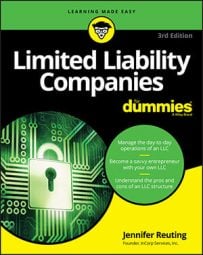All businesses must obtain an employer identification number (EIN for short, but also called a tax identification number or tax ID) from the Internal Revenue Service. The IRS uses this number to identify your limited liability company (LLC) when the LLC pays its taxes.
Over the years, the EIN has become an important number for the government, financial institutions, and other businesses to identify different entities. After all, an LLC in Georgia can have the same name as your LLC in California; how would Uncle Sam be able to tell them apart? Think of it as a Social Security number for your enterprise.
Obtaining credit, paying taxes, and even opening a company bank account are virtually impossible without a tax identification number, so don’t delay! Some attorneys, accountants, and incorporating companies may charge you an arm and a leg to obtain this number for you, but you’re smarter than that. With a few little tips, you can have your tax ID within an hour.
You can obtain a tax ID immediately online and doing a search for EIN online application. This should pull up the page that you need to get your application started. When you’re asked for your Type of Entity, you’ll notice that there is no LLC option. Here’s what to select:
If you’re a single-member LLC electing the default disregarded entity tax status, check the box next to Sole Proprietorship.
If you’re a multi-member LLC electing partnership tax status, check the box next to Partnership.
If you’re electing corporation tax status for a single- or multi-member LLC, check the box next to Corporation, and in the following field, enter the form number 1120.
If you’re a single- or multi-member LLC electing S corporation tax status, check the box next to Corporation, and in the following field, enter the form number 1120S.
If you can, file your Form SS-4 online; you’ll likely receive your tax identification number instantly. Otherwise, you should be able to find the most recent IRS Form SS-4.
Your tax identification number stays with your company no matter whether you change owners, do a statutory conversion to another entity type, redomicile your LLC to another state, or change your tax status.

